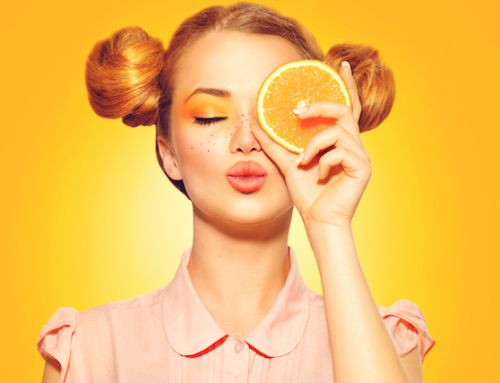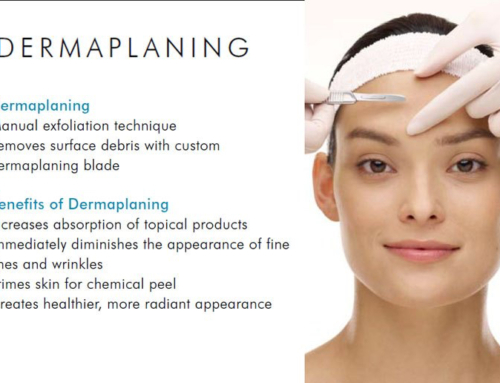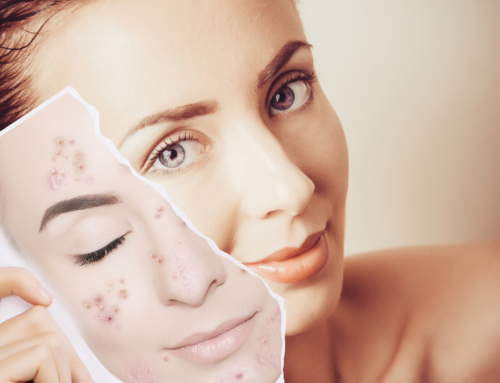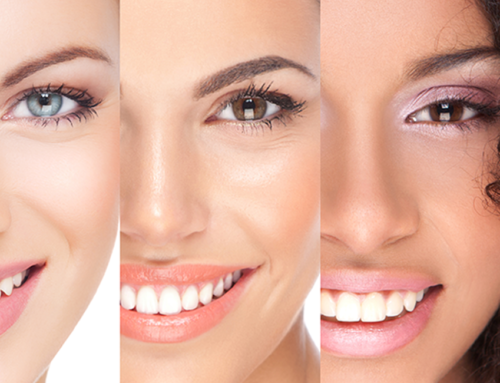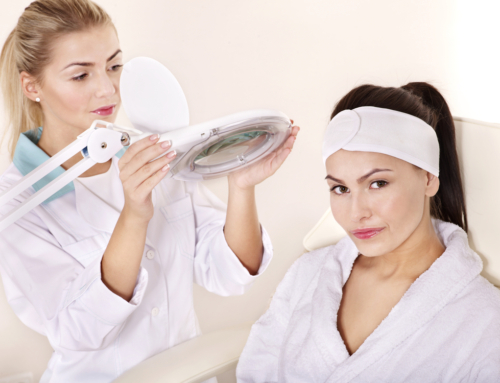Get the Best Pregnancy Safe Skincare in San Diego at SKIN
Pregnancy is a magical moment in every woman’s life. Oftentimes, women have to abandon their regular skincare routine as not all products and practices are safe for their babies. Let’s look at what changes you should expect throughout your pregnancy and some easy pregnancy safe skincare tips you might need.
Pregnancy Skin Care Related Changes
Pregnancy changes can be different from one woman to another. Some get breakouts, discoloration, stretch mark, and hypersensitivity, while some develop rosy cheeks and thick hair. The main reason for these differences is hormonal changes.
During pregnancy, hormones estrogen and progesterone fluctuate. These changes vary in women, and these could cause good or desirable effects or the exact opposite.
Dark lines on the abdomen
During the final weeks of pregnancy, most women develop a black line across the abdomen from the belly button to the pubic area. You may also notice that your nipples are darker, and you’re developing stretch marks everywhere. The regular color will return after pregnancy.
Dark spots and patches
Also called “mask of pregnancy,” these dark patches appear on the face along the cheeks, forehead, and nose. Just like having black lines on the belly, spots, and patches on the face result from increased melanin production.
The spots usually show during the third trimester and are very sensitive to sunlight. You must wear a broad-spectrum type of sunscreen and stay away from the sun to avoid burning. You can use lightening products like retinol, soy, or kojic acid.
Glowing, clearer complexion
During pregnancy, blood volume increase by 40%, which makes the skin look glowing and luminous. Also, weight gain can stretch the skin and make it look tighter. Many women report smoother, tighter, and glowing skin during pregnancy.
Growth of skin tags
Many women grow skin tags when pregnant. Skin tags are minute growths attached to the body and are commonly present on high-friction areas like the groin, underarm, neck, and breasts. Progesterone and estrogen stimulate the growth of the outer layers of the skin. But many or most tags shrink after delivery.
Thicker and glamorous hair
Hair grows from 2 to 6 years and then falls out. However, women continue to have thicker hair due to a gush of hormones, increased blood flow, and water retention. But like other pregnancy-related conditions, these will disappear after your pregnancy.
To remove extra hair, it’s safer to shave than to use hair removal creams and waxes. These could contain dangerous chemicals that can affect your baby.
Moles
You’ll also notice one or more new moles growing and old ones getting bigger. So women get dark growths called pregnancy tumors in the mouth and on the hands. These are harmless growths that will gradually go away after pregnancy. But those that don’t need to be checked right away.
Sensitive or extra-sensitive skin
Aside from being extra irritable during pregnancy, women also experience sensitive and dry skin. It’s best to stay away from products that contain strong fragrances. Use sensitive skin products with no fragrances and colors like soaps, shampoos, moisturizers, face creams, and sunscreen. You can test a new product by applying a small amount on your wrist first.
Oily skin and breakouts
While some women enjoy glowing skin, some are not so lucky. The increase in the hormone progesterone can stimulate oil or sebum production. This leads to breakouts like pimples and acne during pregnancy. You can treat breakouts by using products that don’t contain salicylic acid, retinol, or retinoids.
To treat breakouts safely, use those that contain benzoyl peroxide as this chemical is safe during pregnancy. You can also use natural beauty products like lavender or tea tree oil. And aside from using skincare products, you can use skincare treatments like IPL or intense pulsed light or micro-dermabrasion. Talk to your dermatologist about safe acne and pimple treatments for pregnant women to get the best results.
Varicose veins
Varicose veins are blood vessels that have been stretched to the limit causing the veins to protrude from the skin’s surface. Women develop varicose veins due to increased blood volume that places pressure on their leg veins.
Removing varicose veins is not as easy as applying beauty creams and potions. Using compression garments like hoses will also help, especially if you are mostly on your feet.
Varicose veins in some women are more complex or complicated, and thus, they need the help of a specialist. A treatment called sclerotherapy is the best treatment for varicose veins and is done after pregnancy.
Avoid the Following Ingredients When Pregnant
Most of the regular skincare products we use contain ingredients that could be very harmful to an unborn child. You need to be diligent and read skincare ingredients carefully so that you won’t miss anything. If you have skincare product allergies, food allergies, or other hypersensitivities, talk to your doctor.
Retinoids
The first on our list of beauty ingredients to avoid are retinoids or sometimes listed as retinol, Retin-A, or retinyl palmitate. These are vitamin A derivatives found on various beauty products and anti-aging products, and large doses can lead to severe birth defects. You need retinol for the development of your baby, but too much and the use of derivatives is harmful.
Salicylic acid
Acne is worse during pregnancy, but most treatments are dangerous to a developing baby. It would be best to avoid acne treatments such as those containing benzoyl peroxide, beta hydroxy acids, or salicylic acid. Take note that many anti-acne products use a combination of these ingredients, so beware. Consider treating acne naturally or using safe products and techniques.
Hydroquinone
Pregnancy causes discoloration on the face, neck, and abdomen. You might be tempted to use lighteners and whiteners like those that contain hydroquinone. The FDA has classified this chemical as category C or a chemical with a high absorption rate compared to other topical products.
Using hydroquinone or hydroxy acids can lead to increased amounts that can enter your bloodstream. This beauty product’s chemical can place pregnancies at risk and cause other severe effects.
Formaldehyde
Formaldehyde is one of the common beauty ingredients in hair care products and nail polishes. It is also found in cigarettes and paint and has been associated with infertility and miscarriage. Therefore, you should choose nail polishes with 3-Free or 5-Free labels as these are free from formaldehyde. If you style your hair or use products to style hair, you must choose products that don’t have formaldehyde.
Phthalates
Phthalates are artificial ingredients used in different products like plastics, personal care items, and solvents. Exposure to phthalates is dangerous to pregnant women. Newborns could suffer from infant cryptorchidism, anogenital distance conditions, infant hypospadias, and other birth defects.
Would-be mothers should avoid products with phthalates at all costs and choose only products that are free from this chemical. They must also choose toys, feeding bottles, food hair care products, and everyday items containing phthalates. Check out related stories about phthalate poisoning online for more information.
Chemical sunscreens
Common artificial sunscreens contain ingredients to avoid called hormone disruptors. Chemicals like oxybenzone and avobenzone can directly affect an unborn child’s nervous system causing poor development. It would be best to use physical sunscreens like umbrellas, hats, and scarves instead of artificial sunscreens. It would be best if you also avoid excessive sun exposure at all costs.
Tetracyclines
Tetracyclines are a class of drugs that are used to treat different conditions. Avoid during pregnancy as use has been linked to negative effects on pregnant mothers and their unborn children. You must also avoid tetracycline derivatives like minocycline and doxycycline, as these have.3 similar negative effects. If you have any condition, consult your doctor to get the right medication or treatment. Never self-medicate.
Dihydroxyacetone
Dihydroxyacetone is a chemical that’s sprayed to acquire a tan. It is a safer and easier alternative to tanning beds or tanning under the sun. However, dihydroxyacetone is dangerous when inhaled, especially by expecting women.
Consider the following skincare alternatives
The following are known to be effective and safe skin care products and ingredients for expecting women.
Azelaic acid
Doctors says that azelaic acid is one of the safest skin care ingredients since it has antibacterial properties used to treat rosacea and acne. It can reduce inflammation and pigmentation without causing any side effects. Expecting women can use this to deal with breakouts and still protect their baby.
Essential oils
Good news for women who use aromatherapy. Along with massage, these can help ease pregnancy symptoms like morning sickness, headaches, back pains, and muscle discomfort. Some of the safest pregnancy-safe skin care oils are coconut oil, chamomile oil, peppermint oil, tangerine, and mint. You must avoid essential oils like juniper, sage, and thyme, as these have negative effects. Consult your doctor or your midwife about the essential oils you can try.
Grapeseed oil
You can try- grapeseed oil to apply on the face and the body but not as oral supplements. Grapeseed oil is pregnancy safe and is found in serums, creams, and body oils that can help ease dryness, prevent stretch marks, irritation, and breakouts without causing dangerous side effects. You can try these pregnancy skincare products while pregnant and breastfeeding as these products are safe.
Hyaluronic acid
Hyaluronic acid has no dangerous side effects to both mother and baby, and thus, it can help hydrate skin, say, skin experts. It effectively reduces dry skin, irritation, breakouts, and flaking instead of using harmful chemicals. You can use this on the face or body.
Lactic acid
This is an AHA or alpha-hydroxy acid used to treat breakouts, stretch marks, discoloration, and dullness. Studies show that this is a natural and safe chemical that women use throughout their pregnancy on the face or the body.
Glycolic acid
Meanwhile, glycolic acid is safe under 10 percent concentration. This can be used to treat acne and as a safe pregnancy skin care alternative.
Niacinamide
Niacinamide is a form of Vitamin B3 and is commonly used as a natural ingredient or alternative to harsh rosacea and acne treatments. This is gentle and won’t cause irritation or side effects that can affect a pregnant woman and her unborn child. Use during pregnancy as niacinamide can help ease redness and reduce inflammation. It is also safe to use by breastfeeding women.
Titanium dioxide
Mineral sunscreens are pregnancy safe as they don’t contain chemicals that can be harmful to expecting women. One of the ingredients of this type of sunscreen is TiO2. This sits on the surface of the skin and will physically shield the skin from harmful UV. You can use sunscreens with this mineral from pregnancy up to breastfeeding as this is effective. This can be used on the face and all over the body.
Vitamin C
Pregnancy can bring about noticeable changes in the skin, such as darkening or the development of dark tones. This can help whiten similar to retinoids but is pregnancy safe. You can use skin care products enriched with vitamin C to help whiten and brighten skin and anti-aging. Also, vitamin C can enhance collagen production, strengthening the skin, removing stretch marks and fine lines, and making it elastic. Use during pregnancy, and you can prevent severe stretching and stretch marks with an ascorbic acid-rich cream.
Zinc Oxide
Another pregnancy safe skincare product is ZnO. This mineral is found in natural sunscreens and is safe to use as the skin does not absorb it. Like TiO2, this compound acts as a physical barrier over the skin to shield it from harmful UV. Sunscreens that contain this mineral are safe for pregnant and breastfeeding women.
Also, do no use antiperspirants with aluminum chloride as these ingredients have been classified as Category C by the FDA. This means pregnant women should avoid it as it harms an unborn baby.
Get to know skin care products.
Now that you’re pregnant, you need to be more careful in what you place on your skin. Most chemicals will seep through the skin and can cause negative effects to an unborn child. Always practice the following pregnancy skincare whenever you’re shopping or choosing skincare products:
- Check the product label. A product that says it’s natural or is safe may still pose risks. Therefore, you must read what labels say, including the product packaging and fine print. Beware of phthalates, vitamin A derivatives, and other dangerous chemicals.
- Read research. There is new information about skincare products released through timely research and studies. Most people says it’s your job to read updates and find out breakthroughs about skincare for women.
- Talk to your doctor or dermatologist. Your doctor knows the safest treatment for your skin conditions now that you’re pregnant. If you have sensitive skin or allergies, consult your doctor first before using any skincare product. Follow closely what he says and recommends.
- Never self-medicate. A product that works for some women may not completely work for you, especially when treating skin conditions like acne, rosacea, dryness, and irritation. Always consult your doctor or follow what your dermatologist says. You may earn great skin even while you’re pregnant when you follow this daily regimen.
Step by step pregnancy skincare routine
It’s better to start a good pregnancy skincare routine that works best for you. Here is a simple skincare regimen for expecting women.
- Remove makeup before you sleep. Get a mild skincare cleanser. Use a cotton ball soaked with the cleanser. Take extra care when removing makeup along the eye area, lips, and neck.
- Wash your face in lukewarm water and mild soap, face wash, or facial cleanser. You may use a small washcloth or a towel to scrub your face lightly. Use small circular motions using your fingertips to apply the face wash, facial cleanser, or soap on the skin. Rinse with lukewarm water. Pat your face with a soft, dry, and clean towel.
- Wear moisturizer cream. While the skin is still damp, apply a moisturizer cream to lock in moisture. Use small circular motions to apply the product.
- Apply sunscreen before going out or driving. Use mineral sunscreen instead of artificial sunscreens. Apply according to instructions.
- For the skin on the body, apply moisturizing lotion right after taking a bath. Pay special attention to the skin on the abdomen, neck, knees, elbows, arms, and legs.
- Apply skin lighteners. Choose physical UV rays barriers like wearing hats, using umbrellas and scarves. Do not go out during peak hours.
Skincare during pregnancy is very straightforward. Know the products you must beware of and choose the ones that you can apply safely. Take time to check product labels and learn new and safe skin care treatments and regimens for pregnant women. Finally, consult your doctor or dermatologist to find the safest and most effective treatment.
Are you looking for reliable skincare treatments to ease pregnancy skin symptoms? Do you need help with selecting skincare products for pregnant women? Talk to a skincare specialist, book an appointment today.



